Cover Story
Rising Stars
In case there was any doubt, the future of psychological science is in good hands. The Observer presents this year’s class of “Rising Stars,” the series profiling exemplars of today’s young psychological researchers. Here we profile a constellation of scholars who, although they may not be advanced in years, have already made great advancements in science. Stay tuned for more Stars — this is the first of a three-part series to continue this fall.
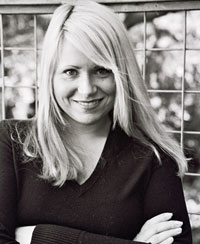 Dana R. Carney
Dana R. Carney
Columbia University, Graduate School of Business
What does your research focus on?
I am interested in the incredible power of tiny, ordinary, nonverbal cues.
What drew you to this line of research? Why is it exciting to you?
I was drawn to this research because of how diagnostic these cues can be when trying to make inferences about others’ mental states.
Who were/are your mentors or psychological influences?
I have had so many incredible mentors and I have been influenced by so many wonderful minds — I could fill all of these pages with the names. My very first mentor was Maureen O’Sullvan. Maureen died last year. She has an incredibly special place in my heart and in my mind.
To what do you attribute your success in the science?
I do not consider myself to be successful but hard work and many hours of practice are the most powerful tools we have if we want to become good at something.
What’s your future research agenda?
I am working with my students Andy Yap and Abbie Wazlawek and my former student who is now at Kellogg, Brian Lucas, on some of the powerful ways in which ordinary, everyday, nonverbal behaviors can exert extraordinary impact on thoughts, feelings, and choice.
Any advice for even younger psychological scientists? What would you tell someone just now entering graduate school or getting their PhD?
What you study is an expression of who you are. Leading a life of science is much more akin to being an artist than anything else. It is a part of you, it comes everywhere with you, you see the world only through its lens, it pervades every aspect of who you are and how you think.
What publication you are most proud of or feel has been most important to your career?
I do not generally feel proud of my work but I like some of my papers more than I like others. A recent paper with my very close, dear colleague, Amy Cuddy and my wonderful student Andy Yap is one I like.
Carney, D. R., Cuddy, A. J., & Yap, A.J. (2010). Power posing: Brief nonverbal displays affect neuroendocrine levels and risk tolerance. Psychological Science, 21, 1363-1368.
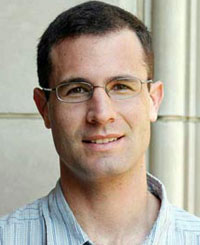 Alan Castel
Alan Castel
University of California, Los Angeles
What does your research focus on?
I study memory, metacognition and cognitive aging. I am interested in age-related differences in memory and cognition and how people make judgments and predictions about memory performance. Specifically, I am very interested in how people remember important information, and if older adults learn to remember important things at the expense of less important information. If you know you can’t remember everything, how do you prioritize what is important to remember? Does this same ability to focus on important information also make one a good student? Do we really understand how our own memory works?
What drew you to this line of research? Why is it exciting to you?
When I was 10 years old, I forgot some of my lines in the play The Wizard of Oz, yet I memorized the periodic table as a teenager even though I didn’t have a deep understanding of chemistry. When I took Intro Psych in my first year of university, I realized people actually studied these sorts of things, and I was captivated. I also spent a lot of time in Florida as a child, surrounded by animated senior citizens, and was interested in their stories and wisdom and their discussions about their own memory. It is exciting to see how students learn to use memory in the classroom and while studying, how older adults view their memory ability, and the various ways we can study the fascinating and mysterious aspects of memory.
Who were/are your mentors or psychological influences?
I have so many! My family is both proud and mildly amused that I am a psychologist. I was encouraged to find out what I wanted to do with my life, without much pressure. I had very good mentors as a graduate student at Toronto, who gave me guidance, freedom, encouragement (often to learn by my own mistakes), and lots of great opportunities. As a post-doc at Washington University in St. Louis, I was able to collaborate with people who enriched my research perspectives and who were also good friends. At UCLA, I work with interesting and supportive colleagues and many interested and motivated graduate students. I would consider many of the older adults I interact with to be mentors in various capacities. I was very fortunate to interview John Wooden and Bob Newhart about memory and successful aging, which was very exciting.
To what do you attribute your success in the science?
Whatever success I have had can likely be attributed to hard work, good luck, perseverance, and patience, and the fortunate opportunity to pursue questions that I find important and interesting. I have also certainly benefited by working with many talented people. I believe that genuine enthusiasm and positivity play an essential role.
What’s your future research agenda?
In many ways it is nice to be recognized as a rising star at the “young” age of 35! In my other dream job (playing professional basketball), I would likely be near the end of a mediocre career. As for future research, I would like to better understand how memory and wisdom interact in old age and how children learn about their own memory. Why does my daughter remember lyrics to a song better than I do, and does she know why I don’t know them? Why can an older adult remember a specific grocery price but forget a recently used phone number, while a 97-year-old can recite a poem her or she learned as a child? I am also very interested in curiosity, expertise, poetry, humor, and music, and although I find those areas to be very challenging to research in the context of memory, they are all fascinating areas that can influence memory. I have also always been interested in how we process and remember numerical information (phone numbers, prices, baseball statistics, etc.) and would like to pursue this in greater detail. Serendipitous findings or observations sometimes lead to exciting new directions as well, so I always try to keep an open mind about future directions.
Any advice for even younger psychological scientists? What would you tell someone just now entering graduate school or getting their PhD?
If you can find something you are interested in, then go for it! I think it is important to read broadly and to ask good questions. I found Richard Feynman’s book The Pleasure of Finding Things Out very illuminating, as there really is a pleasure associated with almost any type of scientific discovery. In fact, I still get excited about replicating a classic experiment and watching students learn about things like serial position effects! As for the entire graduate school process, I think it is important to know there will be many highs and lows, so be prepared for this and don’t be discouraged, because if you really enjoy what you do it doesn’t really feel like work anymore. It is also good to learn about what you don’t like or don’t want to pursue; I learned quite early on that I wasn’t well-suited to be a clinical psychologist. Also, there might also be times where you look back fondly on these exploratory years!
What publication you are most proud of or feel has been most important to your career?
Rhodes, M.G., & Castel, A.D. (2008). Memory predictions are influenced by perceptual information: Evidence for metacognitive illusions. Journal of Experimental Psychology: General, 137, 615–625.
I have been very fortunate to have excellent collaborators, and I have learned that I enjoy collaborating with people who ask interesting questions. The few papers on which I am the only author perhaps represent some independent ideas, but I have realized it is often more stimulating to work with insightful collaborators. In this study, we found that people’s predictions about how well they will remember something are often based on perceptual information that is in fact not diagnostic of later memory performance. Thus, people think that if a word is in BIG font size, it is more memorable (perhaps somewhat surprisingly, it isn’t). We had fun running many experiments to examine this in greater detail, and we are still continuing this line of research. This paper represents an exciting and productive collaboration with a good friend, and a surprising finding, which always keeps you thinking: What else don’t we know (but think we do)? It is also a finding that seems easy to communicate, has some interesting implications, and has also lead to other exciting studies.
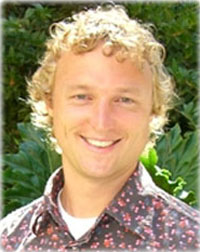 J. David Creswell
J. David Creswell
Carnegie Mellon University, Health and Human Performance Laboratory
What does your research focus on?
My research focuses on how the mind and brain influence our physical health. Much of my work examines basic questions about stress and coping and trying to understand how these factors can be modulated through stress-reduction interventions. In two related lines of research, I am exploring the mechanisms for how self-affirmation and mindfulness meditation reduce stress and improve health outcomes in at-risk stressed patient populations. This work is multimodal and attempts to model how these stress-reduction practices can impact neural stress-regulation pathways in ways that reduce biological stress reactivity and how, over time, these practices can impact physical health in stressed patient populations. More recently, I have been interested in understanding how coping practices can be learned, and I have some new research exploring the unconscious neural mechanisms of learning and decision making.
What drew you to this line of research? Why is it exciting to you?
Meditation puzzles me. How does a practice of sitting quietly and paying attention to one’s experience translate into health benefits? We know surprisingly little about how the mind and brain influence our bodies — and I’m excited to uncover the underlying mechanisms explaining these links. I also enjoy figuring out ways we can improve the quality of our experience — so that we feel more fulfilled, and live longer with a greater quality of life. Health psychology is a field that explores these issues — as a health psychologist, I can explore the black box of our minds and brains and link these processes to real-world health and performance outcomes.
Who were/are your mentors or psychological influences?
My mentors are the sole reason for my initial successes in psychology. I went to UCLA’s Social and Health Psychology program for my PhD training, and I had the opportunity to work with a number of leading health psychology faculty. My training ended up being a bit nontraditional — I initially started at UCLA as a sport psychology graduate student, but things didn’t work out. I was then adopted by some of the health psychology faculty members at UCLA in my second year in graduate school. I feel so grateful to Traci Mann (a young health psychology faculty member at the time), who saw some promise in me and gave me a chance to continue in the PhD program. I ended up working with a lot of faculty members at UCLA — which was pretty amazing. I learned so much from my many mentors — each had unique perspectives and approaches that have informed my work. Traci Mann taught me how to manipulate variables in well-controlled lab studies, Hector Myers showed me how to write grants and gave me opportunities to ask big questions about meditation and health, and Shelley Taylor shared with me her brilliance, discipline, and bravery to tackle important questions. I had other wonderful mentors on projects in graduate school (too many to mention!), and I feel so grateful for the opportunities they provided to test questions that excited me. It’s more than just opportunities, though — my mentors and the health psychology program at UCLA taught me how to think critically. I learned how to develop a program of research, how to be brave and diligent when my work moves into uncharted territory, and how to figure out which questions are important to pursue in my work. I also want to recognize my parents, John and Karen Creswell, who deserve so much credit for shaping me as a person and scientist. They showed me how to be a good person, and they gave me every opportunity to pursue my dreams. Finally, I want to acknowledge my partner Kasey Griffin, who is a brilliant psychological scientist who inspires me every day.
To what do you attribute your success in the science?
I think one reason why I’ve had some initial successes is that I’m good at getting people to work together. I love team science. I learn so much from my students and collaborators, and I love to see them run with ideas and projects. I am just one small piece of each publication — the work reflects the team effort, and I enjoy being a team leader.
What’s your future research agenda?
I’m really excited about the future of psychological science. We have so many new technologies available to us to answer new and old questions. I am most excited about building a broad integrative model of coping and stress regulation — how do we regulate stress? What are the neurobiological pathways of coping and resilience, and what are the limiting conditions? How is coping learned?
Any advice for even younger psychological scientists? What would you tell someone just now entering graduate school or getting their PhD?
Working at the forefront of science is hard work — but you owe it to yourself to be brave, to be diligent, and to make an impact. You won’t get much immediate feedback as a scientist (your work can take years before it shows up in print!), but it’s so important—your work has the ability to change our culture and make a worldwide impact. So stay with it. Also, I think the process of developing new ideas is very important — make sure to designate time regularly to think about new directions. Write down your ideas, let them sit for weeks, and when you can’t let go of an idea, then it’s time to run an experiment. Track several leading scientific journals and read the newest work that interests you — work at the forefront of science.
What publication you are most proud of or feel has been most important to your career?
I’m always most excited about the paper I’m currently working on! I think the paper I’m most proud of is also the most obscure (least cited!) paper in my body of work. It was a paper exploring the effects of self-affirmation writing in breast cancer survivors — a paper I wrote early in my graduate career that revealed a novel mechanism for expressive writing effects on health. It was an interesting idea that I pursued on a shoestring budget, and it showed me that I could be successful in conducting and disseminating my research.
Creswell, J.D., Lam, S., Stanton, A.S., Taylor, S.E., Bower, J.E., & Sherman, D.K. (2007). Does self-affirmation, cognitive processing, or discovery of meaning explain the cancer-related health benefits of expressive writing? Personality and Social Psychology Bulletin, 33, 238–250.
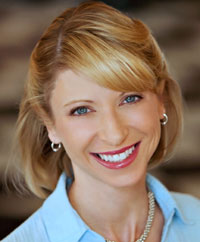 Amy Cuddy
Amy Cuddy
Harvard Business School
What does your research focus on?
Much of my work has focused on social categories (e.g., Asian Americans, elderly people, Latinos, working mothers) — how they are judged by others and by their own members (i.e., stereotyping) and how these judgments set the tone and content of social interactions (i.e., prejudice and discrimination). My collaborators and I have developed a body of research that concentrates on judgments of other groups and individuals along two core trait dimensions, warmth and competence, and how these judgments shape and motivate our social emotions, intentions, and behaviors. I examine how these social-perception and influence processes play out in contexts such as hiring, promotion, and charitable giving, among others. My most recent work examines warmth and competence in the domain of nonverbal behavior — demonstrating how brief nonverbal expressions of competence/power and warmth/connection actually alter the neuroendocrine levels, expressions, and behaviors of the people making the expressions, even when the expressions are “posed.”
What drew you to this line of research? Why is it exciting to you?
I’d always been interested in social issues, which is what drew me to study prejudice. I grew up in a tiny farming town in Pennsylvania, where everyone was not only White — they were also proudly German-American and Protestant. You couldn’t imagine a more homogeneous place. And people there rarely traveled — even to Philadelphia, which was only an hour away — which made it a very closed-minded culture. But I felt different. First, I always had this strong sense of justice, trying to organize other students around different social and environmental causes as early as elementary school. And second, my parents had passed on to me a sort of wanderlust — I wanted to experience other cultures and to meet people who were different from me. I was always the first to befriend the exchange students or say “yes” to the opportunity to go somewhere new. When I moved away for college, I was wide-eyed and eager to make the world a better place. I was sort of shocked to see the range and scope of suffering, and so when I became interested in social psychology, studying prejudice was just a natural fit.
I believe my more recent interest in nonverbal behavior is rooted in my love of dance. I was a serious ballet dancer into my twenties — I still take classes and love to go out dancing — so I’ve always had this innate interest in expression through movement. But it also ties to my prejudice research, because my first project in this area grew from noticing differences between male and female students’ nonverbal behavior during class, and wondering if and how these differences might be underlying a gender gap in participation grades.
Every single day I feel grateful to have a job that rewards me for thinking and teaching about the very questions that naturally fascinate me.
Who were/are your mentors or psychological influences?
Many people — but the first three who come to mind are two mentors and one peer. I had the most amazing graduate advisor a person could hope for: Susan Fiske. No one has had (or ever will have) a greater influence on my thinking. I don’t know where to begin or end: Susan is brilliant, social-minded, knows more about social psychology than anyone else I know, and was completely devoted to me and my training. If I sent her a draft of a paper, I had it back the next morning with detailed, constructive feedback. If I gave a talk, she was there taking notes and ready to meet with me as soon as I was finished. I never felt like a burden. Susan taught me how to think, how to write, how to work, and always had my back. I only hope I can pay it forward. As an undergraduate at Colorado, I lucked my way into a research methods course taught by Bernadette Park, who became my undergraduate advisor. Not only is she an incredibly creative methodologist and thinker, she also spent generous chunks of time working with me on my honors thesis — a rare thing at such an enormous university. Mike Norton, a peer and great friend, taught me how to spot ideas that would excite and motivate me; he’s a creative inspiration and a great model of a prolific scholar studying only questions that truly fascinate him. He also made me laugh at all the right (and wrong) moments in grad school.
To what do you attribute your success in the science?
In this order: (1) Susan Fiske; (2) irrational tenacity; (3) dispositional enthusiasm, optimism, and curiosity about the world; and (4) great collaborators.
What’s your future research agenda?
I’m really excited to be developing a program of research that looks at how nonverbal expressions of competence/power and warmth/connection influence people’s neuroendocrine levels, feelings, and behaviors. My work with Dana Carney on “power posing” has revealed that posing in high- (i.e., expansive) vs. low- (i.e., contractive) power postures for just two minutes affects people’s testosterone and cortisol levels, their feelings, and their behaviors. We are extending that work in several directions, looking at (1) how these nonverbals influence performance in various domains, such as job interviews, sales, and negotiations; (2) using eyetracking, differences between how men and women are perceived when nonverbally expressing high versus low power; and (3) cross-cultural differences in how high- versus low-power nonverbals are perceived. I’ve also begun a parallel line of research with Frank Asbrock on nonverbal expressions of warmth/connection, examining their physiological, emotional, and behavioral outcomes.
Any advice for even younger psychological scientists? What would you tell someone just now entering graduate school or getting their PhD?
First, approach graduate school with openness and modesty; you are smart, but you also have a lot to learn. Don’t be in a rush to test your ideas — there will be plenty of time for that. Graduate school is about mastering a craft, learning the history of your field (something that’s grossly undervalued), cultivating a new way of thinking, and discovering your sources of inspiration.
Second — and this is very concrete, practical advice — when you’re running studies, write the methods and results sections as you go. Don’t wait until you’ve run five studies to write the entire paper. Writing-as-you-run has several advantages: (1) A year later, when you’re trying to get the paper out, you won’t be racking your brain trying to remember what you did and how you did it; (2) it will help you figure out what your next research steps should be; and (3) it’s gratifying to have the manuscript half written when you “start” writing it! (You can thank Mike Norton for this suggestion.)
What publication you are most proud of or feel has been most important to your career?
Cuddy, A. J. C., Fiske, S. T., & Glick, P. (2007). The BIAS Map: Behaviors from intergroup affect and stereotypes. Journal of Personality and Social Psychology, 92, 631-648.
This really was the (collaborative) culmination of the blood, sweat, and tears I put into grad school. I’m proud of the theoretical breadth of this work, the emphasis on behavioral outcomes of stereotypes, and I am very pleased to see how other scholars have applied it in a variety of contexts to predict how specific groups will be perceived and treated. I’m thrilled that it seems to have both theoretical and practical value.
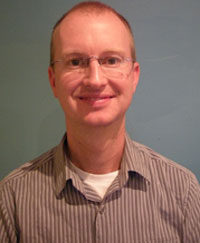 Thomas F. Denson
Thomas F. Denson
University of New South Wales, Sydney, Australia
What does your research focus on?
I am a social psychologist interested in the causes and consequences of anger and aggression. The work in my laboratory takes a wide-ranging approach to understanding these phenomena in that we investigate psychological and biological variables and their interactions. Specific foci include understanding the role of self-control in aggression as well as trying to identify how individuals can best regulate their anger. Two additional research interests include prejudice and social stress. So, the sunny side of life really
What drew you to this line of research? Why is it exciting to you?
I am intrigued by why people hurt each other. I am not convinced perpetrators always understand why they aggress. All you have to do is glance at the headlines to see that the problem has not yet been solved. The sheer magnitude and universality of anger and aggression keeps me motivated. Being male and growing up on a diet of Arnold Schwarzenegger movies probably helped too.
Who were/are your mentors or psychological influences?
I live in Australia, but grew up in Southern California. I got my B.A. from the University of California, Santa Barbara. I took Brenda Major’s social psychology class during my last quarter at UCSB, which inspired me to continue on. I did not get into graduate school right away due to some pretty miserable GRE scores, but Brenda’s letter got me into a Research Psychology M.A. program at California State, Long Beach, where Jim Amirkhan — a great guy — kindly supervised my thesis. When I finally did get into graduate school at the University of Southern California, I was fortunate to have two PhD supervisors: Norman Miller and Brian Lickel. Being supervised by both junior and senior people was the best of both worlds. From Norman, I learned methodological rigorousness, emphasis on behavior, and passion for science. Brian was extremely generous with his time and knowledge, and he set an amazing example of hard work. I also learned a lot about public speaking from him. For example, he suffered through my job talk no less than four times and provided exceptionally detailed and helpful feedback each time. I also learned that getting tenure at a major American research university seems like it can be pretty stressful.
To what do you attribute your success in the science?
All of the people mentioned above, my supportive wife, dedicated students, and funding from the Australian Research Council and the Australian National Health and Medical Research Council. Moreover, so many people have helped me over the years. After getting my PhD in 2007, I moved to the University of New South Wales. There is a great group of people here who have generously mentored me. I have also been fortunate to work with a number of excellent collaborators in Australia, Europe, America, and Asia. I am also indebted to the very helpful aggression researchers I have met at conferences over the past few years. Current and former presidents of the International Society for Research on Aggression, Craig Anderson and Deborah Richardson, have been exceptional in encouraging junior people like myself. Mario Mikulincer and Phil Shaver invited me out to Israel in 2009 for their Herzliya series on social psychology, for which I am most grateful. Ironic as it may sound, aggression researchers are actually very nice.
What’s your future research agenda?
We recently started a new project investigating aggressive driving with a state-of-the-art driving simulator that I am pretty excited about. We have been doing some alcohol and aggression stuff that I am really enjoying. I also think there is a lot more work to be done on understanding self-control processes in aggression and anger regulation. We also plan to investigate hormonal influences on anger control, aggression, and neural activation, as there have been some pretty interesting developments in the area recently.
Any advice for even younger psychological scientists? What would you tell someone just now entering graduate school or getting their PhD?
At the risk of sounding like a motivational poster you might find adorning the lobby at a major corporation, perseverance in the absence of positive reinforcement is an important skill to develop. I took the long road to a PhD, ran many failed experiments in graduate school, and got some really nasty decision letters (which I sometimes use in my talks when I need an example of a provocation). I also think enjoying your work is extremely important. Being a social psychologist is a lot of fun, but sometimes we tend to forget that.
What publication you are most proud of or feel has been most important to your career?
Denson, T. F., Pedersen, W. C., Ronquillo, J., & Nandy, A. S. (2009). The angry brain: Neural correlates of anger, angry rumination, and aggressive personality. Journal of Cognitive Neuroscience, 21, 734-744.
In this paper, we induced anger with a realistic provocation and subsequently induced rumination. This study was my first fMRI paper as lead author. It was very challenging but I enjoyed the entire process. The data came out beautifully and the results have really influenced my thinking regarding the role of control mechanisms in anger regulation and aggression. I really felt like we had discovered something interesting that could eventually be beneficial to perpetrators of aggression and their potential victims.
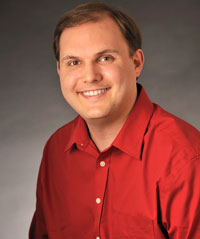 C. Nathan DeWall
C. Nathan DeWall
University of Kentucky
www.uky.edu/~njdewa2/home.html
What does your research focus on?
My research emphasizes the pervasively social nature of human beings, a nature that includes a powerful motivation to form and maintain social connections, a propensity to behave aggressively, and a sophisticated capacity to self-regulate. My research program focuses on these three related processes: (1) the consequences of social rejection and acceptance, (2) understanding risk and resiliency factors for aggression, and (3) why humans and non-human animals succeed and fail at self-regulation.
What drew you to this line of research? Why is it exciting to you?
I’ve always been interested in interpersonal relationships and understanding why people fail to live up to personal and societal standards. To understand the strength of the human motivation for positive and lasting relationships, I wanted to investigate how thwarting this motivation affects people. People experience feelings of exclusion and rejection quite frequently, which poses a tremendous threat to well-being. I am continually surprised by how people respond to deficits in their feelings of social connection and the dramatic measures most people take to regain a sense of belonging. My research on aggression and self-regulation followed closely from my interest in interpersonal relationships. Because the need to belong touches so many aspects of life, I felt that the desire to be accepted and included may inhibit aggressive and other undesirable impulses. This program of research excites me for two main reasons. First, these topics apply to everyone. As a result, this research can be of use to many people. Second, I feel that I’ve only scratched the surface about what I know about relationships, aggression, and self-regulation. Hence, I always arrive at work knowing that I have so much more that I can learn.
Who were/are your mentors or psychological influences?
I’ve had spectacular mentors. At St. Olaf College, Chuck Huff and Bill Altermatt got me hooked on research. At the University of Chicago, Penny Visser showed me the ins and outs of getting a program of research going. At Florida State University, I met the person who would change my life as a researcher forever: Roy Baumeister. Roy showed me not only the basics of doing research, but also the stuff that most graduate students have to learn on their own. He taught me about the importance of writing, remaining curious and open-minded to research ideas, and how to collaborate effectively with others. Fortuitously, I arrived as a graduate student at Florida State the same year that Jon Maner arrived as an assistant professor. Jon also provided crucial mentorship, especially regarding the best ways to navigate the early years as an assistant professor. When it comes to mentorship, I feel a lot like Yankee slugger Lou Gehrig: “the luckiest man on the face of the earth.”
To what do you attribute your success in the science?
Three things. First and foremost, I treat writing like a class. I write uninterrupted every day at the same time. I write 20 hours a week. When I travel, I always schedule my time so that I can get my weekly writing hours. I try not to write at home or on the weekends. That’s family time. I read books about writing. By being disciplined about writing, I don’t have to worry about things that depend on being a productive scientist (e.g., tenure and promotion). I also don’t have to worry about being an absentee spouse. Second, I have hard-working, conscientious collaborators. I believe strongly in the principle of “team science.” Trying to master everything is a fool’s errand. People have their individual strengths they bring with them to projects. By putting together an effective team for a project, the process flows smoothly and is extremely rewarding. Third, I remain curious and open-minded. I try not to get tied down to any perspective, any method, or any past experience I’ve had that will limit my ability to be open to new research ideas.
What’s your future research agenda?
I’m still enchanted with research on interpersonal relationships, aggression, and self-control. I will continue to do research on these related processes for several years. With my interpersonal relationships research, I plan to devote a good deal of attention to ongoing relationships, to focus on the steps that people take to restore feelings of connection, to understand the implications of social connection on substance use, and to apply these findings to clinical samples. With my aggression research, I will continue to explore the importance of psychological and biological self-control processes on aggressive behavior. I’m also beginning to explore genetic risk and resiliency factors for aggression. With my self-control research, I will continue to explore how situational and personal factors help to predict impulsive behavior and the mechanisms that help explain why such behavior occurs.
Any advice for even younger psychological scientists? What would you tell someone just now entering graduate school or getting their PhD?
First, develop a consistent writing routine. Writing is like eating. If you do it in on a regular basis, you’ll have a healthy career. Don’t binge write. Second, have clear-cut career goals and develop a specific plan for how to accomplish them. Run your plan by people you admire. It’s easy to confuse activity with accomplishment, especially in graduate school. Third, learn to appreciate constructive criticism, even when it hurts. Advisors, reviewers, and editors have the goal of trying to help you. It is difficult to see that sometimes, but it’s always been true for me. Academics show other academics they care by offering feedback. When your advisor criticizes your idea, when a reviewer points out a flaw in your paper, or when an editor rejects your paper, don’t panic. If you remember that they’re trying to help you, it will be easier for you to use their feedback to strengthen your idea. Fourth, remember that no idea is off-limits. Push yourself outside of your comfort zone. Finally, remember that being a psychological scientist is only one part of who you are. Develop hobbies, read books and papers outside of psychology (I love history and business/economics books), buy a dog (or, in my case, two dogs), and remember that psychology isn’t the only fun thing you get to do.
What publication you are most proud of or feel has been most important to your career?
DeWall, C. N., MacDonald, G., Webster, G. D., Masten, C., Baumeister, R. F., Powell, C., et al. (2010). Acetaminophen reduces social pain: Behavioral and neural evidence. Psychological Science, 21, 931-937.
Using daily diary and fMRI methods, we provided the first evidence that an over-the-counter analgesic (i.e., acetaminophen) reduces the pain of social rejection.
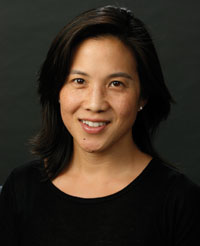 Angela Duckworth
Angela Duckworth
University of Pennsylvania
What does your research focus on?
I study individual differences that predict achievement. In particular, I’m interested in self-control, defined as the regulation of emotion, attention, and behavior in the service of valued goals and standards, and grit, defined as sustained perseverance and passion for especially challenging goals. The questions that keep me up at night (and get me up early in the morning) include: What metacognitive strategies facilitate self-control and grit, what are the developmental antecedents and real-world consequences of these competencies, and how are they related to well-studied predictors of achievement such as general intelligence and socioeconomic status?
What drew you to this line of research? Why is it exciting to you?
Before I was a research psychologist, I was a middle school math and science teacher. Altogether, including two years running an enrichment program for low-income elementary school children, I spent seven years working with kids. I left K-12 education only because I began to see that the root cause of underachievement in children was typically not a lack of intellectual ability. Rather, I saw children fail repeatedly for lack of — and, conversely, thrive because of — concerted, sustained, goal-directed effort. How do we get kids to work harder and, hence, learn and achieve more? Answering this question is the ultimate aim of my research program.
Who were/are your mentors or psychological influences?
I’ve had the extraordinary good fortune of working alongside some of the greatest minds in social science. My doctoral advisor was Marty Seligman, who showed by example the importance of working on research questions that were at once tractable, interesting, and consequential. I have also benefited — immensely — from collaborating with Walter Mischel, Anders Ericsson, Gabriele Oettingen, Don Lynam, Chris Peterson, Rob Kurzban, Roy Baumeister, Mike Matthews, and Brent Roberts, all brilliant, generous, and generative psychologists. Most recently, I’ve been learning from Nobel laureate economist Jim Heckman. With the support of the National Institute on Aging, we are working on an economic model of self-control and its development.
To what do you attribute your success?
In addition to fabulous mentors, I’ve had the most wonderful students and research assistants; they make coming to work every day a true joy. My department has been terrifically encouraging. And, perhaps most important of all, I am blessed with an incredibly supportive family — they put up with my long hours, inconvenient travel schedule, and occasional bouts of post-journal-rejection crankiness.
What’s your future research agenda?
With Stephanie Carlson and Ethan Kross, I’m planning a series of short-term intervention studies to test the self-control strategy of psychological distancing across waiting, working, and emotion-regulation situations. Also, Gabriele Oettingen and I hope to study the benefits of mental contrasting with implementation intentions, a self-control strategy she and Peter Gollwitzer developed, among low-income high-school seniors preparing for college. And, with Anders Ericsson, I’m exploring the in-the-moment and after-the-moment subjective experience of practice and learning; we want to know if Aristotle was right about the roots of education being “bitter” and its fruits “sweet.”
Any advice for even younger psychological scientists? What would you tell someone just now entering graduate school or getting their PhD?
I try to abide by two rules when deciding where to allocate my professional energies. First, I work with collaborators I admire, respect, and enjoy. Second, I work on questions which are meaningful to me at the deepest personal level.
What publication you are most proud of or feel has been most important to your career?
I am especially proud of my first publication.
Duckworth, A.L., & Seligman, M. (2005). Self-discipline outdoes IQ predicting academic performance in adolescents. Psychological Science, 16, 939-944
That study took me “into the field,” working closely with public-school teachers, students, and their parents — and I’ve stayed out in the field ever since!
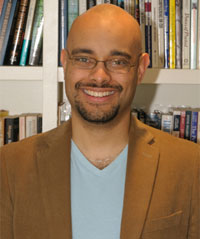 Phillip Atiba Goff
Phillip Atiba Goff
Executive Director of Research, Consortium for Police Leadership in Equity
University of California, Los Angeles
www.psych.ucla.edu/faculty/faculty_page?id=147&area=7
What does your research focus on?
My research focuses on contemporary racial and gender discrimination, particularly in the domain of criminal justice. It is inspired by a single question: How does one explain persistent racial inequality in the face of declining explicit racial prejudice? This question summarizes the conundrum of many contemporary intergroup conflicts and presents difficult practical and theoretical challenges to traditional psychological approaches to bias and discrimination. Rather than assuming that declining prejudiced attitudes are simply evolving, my work investigates possible psychological mechanism that produce inequality even absent bias. Put another way, my work investigates racism without racists (and sexism without sexists, etc). The goal of my research is to generate new language to describe contemporary intergroup conflict that foregrounds the role of situations in producing objectionable outcomes and, therefore, better describes both the mechanisms and experiences of racism and sexism.
What drew you to this line of research? Why is it exciting to you?
My interest in creating a better language for contemporary discrimination began in high school, when I was confronted with a kind of bigotry for which my community had not prepared me. I had assumed that bigots were uneducated and simple, and my experiences up until my senior year of high school confirmed that assumption. That changed when I took a class from a sharp-minded educator who hated Black folks. That his anti-Black arguments were seemingly well-reasoned only served to further injure and infuriate myself and other Black classmates who found ourselves ill-equipped to counter them. Consequently, I dedicated my free time to developing a better language about race and racism in the hopes of healing some of those injuries (with the help of several mentors who had long bemoaned his gentile bigotry). This eventually became my vocation.
The rest of my academic trajectory has been a series of happy accidents. I wound up in psychology because I thought it offered the best methods for understand contemporary discrimination, and I wound up studying law enforcement because it permitted me to translate research from the lab to the world and back. The most exciting part of my job is being in a position to do science and influence policy without having to choose between the two. That gets me excited to go to work every day, even when the data don’t cooperate.
Who were/are your mentors or psychological influences?
I have been blessed to have many, many intellectual inspirations in my short life. My father, a philosopher, taught me to play with ideas. My high school mentors, Jim Davis and Carlton Bradley, taught me to take that play seriously. My college mentors, Cornel West, Larry Bobo, and William Julius Wilson, taught me the difference between being a student and being a scholar. My mentors in graduate school (and beyond), Claude Steele, Jennifer Eberhardt, Lera Boroditsky, and Hazel Markus, each helped me to become a scholar and taught me to be thankful for others’ patience with me. And my principal collaborators/mentors, Tom Tyler, Jack Dovidio, and Jim Sidanius, continue to demonstrate how far I have to go. What strikes me about the process of naming my mentors is how different the landscape of the academy looked when many of them were becoming scholars themselves. My generation of academics is familiar with the experience being the “first” (Black, queer, female, etc.) in various parts of our professional lives. But whatever our trials might be, they pale in comparison to those of the generation before. As much as any of the gifts that individual mentors have given me, I am thankful to each of them for creating a generation of mentors that provide models and support for mine.
To what do you attribute your success in the science?
See above!
What’s your future research agenda?
Understanding which self-threats produce which kinds of discrimination is a project that will likely outlive my career. Similarly, I am unlikely to reach a point when I fully understand all the ways that race and gender influence the equitable enforcement of laws. So, I suppose my “agenda” is to keep translating research with law enforcement to lab experiments and vice versa until I am physically unable to do that anymore. Then, maybe, I’ll tour with Prince.
Any advice for even younger psychological scientists? What would you tell someone just now entering graduate school or getting their PhD?
I would encourage PhD students to remember how impossibly privileged academics are by virtue of our vocation. Despite the many demands on our time and the daunting process of professional advancement, we are fundamentally paid to ponder the human condition, discover things about it, and write up what we find. That’s a pretty cool job description. I think graduate students are happier (and better job candidates) when they are more afraid of squandering that privilege than they are of not getting a job. I think I am a better colleague (and better scholar) when I am more driven to maximize my opportunities than I am to earn tenure. And I think our field is better regarded (and more useful) when we prioritize the pursuit of knowledge above the pursuit of job security. So my advice would be something I learned from my mentors: Take seriously your responsibility to wonder. Do it early, often, and ceaselessly.
What publication you are most proud of or feel has been most important to your career?
Goff, P. A., Eberhardt, J. L., Williams, M., & Jackson, M. C. (2008). Not yet human: Implicit knowledge, historical dehumanization, and contemporary consequences. Journal of Personality and Social Psychology, 94, 292-306.
This was a terrifying manuscript to work on, both because we were worried about what the field would think of us, and because our findings supported hypotheses that had appalling consequences in the world. When running analyses on our data, the excitement that usually accompanies significant results was always accompanied by the crushing reality of what we had found. A few years removed from that process, the experience of conducting this research has become the model for how I want to be a scholar. I was excited about the science and simultaneously felt the weight of what we were learning. “The nausea lets you know you’re doing it right!” a friend told me. It’s funny because it’s true.
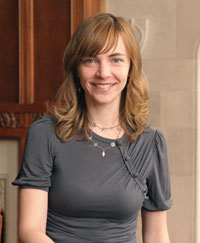 June Gruber
June Gruber
Yale University
http://www.yalepeplab.com/junegruber
What does your research focus on?
In what ways can feeling good actually be bad for us? There is a fair amount of research on associated difficulties of negative emotions like fear in anxiety disorders or sadness in depression. We know almost nothing about the potential negative consequences of positive emotions. My work explores this surprising and counterintuitive possibility by delineating the nature of positive emotion disturbance along a continuum in people with normative degrees of positive emotion (college students and community samples) as well as clinical patient samples characterized by extreme degrees of positive emotion (bipolar disorder). I take a multi-method approach in my work by measuring experiential, behavioral, and biological indices of emotion response.
What drew you to this line of research? Why is it exciting to you?
Like many people, I wanted to understand happiness better. I first got involved in research as an undergraduate at UC Berkeley focusing on the ways different types of positive emotions promote well-being and health. This exposed me to a rich landscape of literature and methodological tools in affective science and positive psychology. During my subsequent graduate studies in clinical psychology, I worked intensively with patients diagnosed with bipolar disorder. My work with this population taught me that there are two sides to every story, even for positive emotion. Specifically, working with bipolar patients exposed me to periods of mania characterized by intense and exaggerated positive mood, elevated self-esteem, and seeming invincibility to concerns of the external world. It was here that I first saw the potential negative consequences of too much positive emotion and how it could lead to risky and even life-threatening behaviors. This got me hooked, and I’ve continued to focus on understanding this “dark side of positive emotion” ever since.
Who were/are your mentors or psychological influences?
I was fortunate to work with a diverse group of mentors as a graduate student, who all had a common passion for science. As a result, my research interests were somewhat of an eclectic patchwork quilt. I feel fortunate to have been exposed to a broad horizon of skill sets and theoretical approaches from several great leaders in the field of emotion and psychopathology. This includes Sheri Johnson who taught me to balance curiosity with compassion when working with bipolar patients and to remain grounded in the process; Dacher Keltner who has an amazing ability to cultivate a sense of excitement and positivity and an appreciation for big-picture ideas in affective science; Ann Kring who first exposed me to research on emotion and ingrained in me the importance of methodological precision; Robert Levenson who was never afraid to challenge me and push my thinking while offering constant intellectual support; and Allison Harvey, who I was privileged to do my dissertation work under and who provided me with the unique opportunity to learn how to conduct large-scale projects in a collaborative team environment. I feel lucky to stand on the shoulder of such generous intellectual giants and equally kind human beings.
To what do you attribute your success in the science?
I think most success is a recipe that involves one part creativity, one part sheer serendipity, and 100+ parts perseverance. Getting involved in science is akin to signing up for a lifelong marathon, and perseverance is what carries most successful researchers through to the finish line. I personally think the most important thing to take care of and cultivate in yourself is a sense of curiosity; beyond all else, this is what has kept me happy doing what I do, and keeps me doing it.
What’s your future research agenda?
To keep doing things that excite me. Right now, this involves conducting work that utilizes multi-method and multi-level approaches to understand the bidirectional relationship between positive emotion and mental health outcomes. I’m exploring new directions in this domain, including the addition of neuroimaging and genotyping tools to identify pathophysiological processes underlying positive emotion disturbance and conducting translational studies linking laboratory assessments of emotion functioning with longitudinal health outcomes in bipolar patients. However, I try to keep an open mind and spirit in thinking ahead. This helps me appreciate the unexpected new ideas and directions that arise through serendipitous collaborations and with bright new students I am fortunate to mentor.
Any advice for even younger psychological scientists? What would you tell someone just now entering graduate school or getting their PhD?
Be true to yourself. Spend time doing the things that you are genuinely curious about. Graduate school is a lot of hard work, so make it worth your while.
What publication you are most proud of or feel has been most important to your career?
Gruber, J., Johnson, S. L., Oveis, C., & Keltner, D. (2008). Risk for mania and positive emotional responding: Too much of a good thing? Emotion, 8, 23-33.
This was my first major publication as a bright-eyed and young grad student. I did not get the results I expected or wanted, and I was initially bummed. In hindsight, this was the best thing that could have happened. It changed the way I think about mania and positive emotion forever after. Counterintuitive results open up paths to viewing phenomena in an entirely new way and remind us humble scientists that we often have little control over the results we get. Even Einstein once said, “If we knew what we were doing, it wouldn’t be called research.”
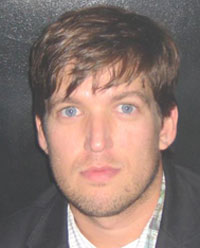 Greg Hajcak
Greg Hajcak
Stony Brook University, The State University of New York
www.psychology.stonybrook.edu/ghajcak-/
What does your research focus on?
My laboratory focuses on cognitive and affective science and their intersection with psychopathology (anxiety, depression, and psychosis). We are particularly interested in emotion–cognition interactions: how attention, emotion, and cognitive control relate to one another — including the topic of emotion regulation, which has become hot over the past few years. We are also interested in the converse: how motivation and emotion influence processes that are seemingly “cognitive.” Our research tools include psychophysiological, neurobiological, and behavioral measures — we work a lot with EEG and ERPs, the startle reflex, and increasingly, integrating multiple measures. We are very interested in whether individual differences in these processes might serve as concomitants of, and markers of risk for, psychopathology. Although most of our work has been in adults, we are increasingly studying children and developmental processes in my lab.
What drew you to this line of research? Why is it exciting to you?
As an undergraduate, I was really drawn to neuroscience and psychophysiology as methods for understanding psychology. At the same time, I suffered with “so what?” doubts. For me, the application of psychological science to understand psychopathology makes the enterprise both more exciting and meaningful. I get to have it both ways: I can study basic processes and focus heavily on methods, as well as apply this work towards understanding psychopathology.
Who were/are your mentors or psychological influences?
Bob Simons at the University of Delaware was a fantastic mentor in graduate school — and was extremely influential in my development as a psychophysiologist. Bob was Peter Lang’s student, and I continue to be influenced by that tradition and the excellent work that comes out of the Lang/Bradley lab in Florida. I received outstanding clinical training for four years from Edna Foa and her group at the University of Pennsylvania; Edna and others there (Marty Franklin, Jonathan Huppert) helped shape the way I think about research in anxiety disorders and psychological treatment. Over the years, I have received (and continue to receive) a good deal of mentoring from my friends and colleagues — to whom I’m very grateful (the full list is on my lab website).
To what do you attribute your success in the science?
I have been lucky to receive great mentorship; more recently, I would attribute my lab’s success to outstanding students, top-notch colleagues, collaborators, and friends. I am also deeply grateful to the Society for Psychophysiolgoical Research (SPR) for a warm and intellectually stimulating environment, as well as for continued support and mentorship from its members. In terms of personal characteristics, I think it helps that I continually get excited about psychological science, and work hard.
What’s your future research agenda?
Our research will continue to focus in parallel on a better understanding of basic cognitive/affective processesand translational utility and implications. We’ll continue to use multiple methods and work on integrating them (i.e., EEG and fMRI, EEG and eye-tracking). One example of an area that we’re increasingly focused on is reward sensitivity. In terms of basic work, we’re interested in refining neural and behavioral measures of reward sensitivity and its quantification, and understanding factors that impact reward sensitivity. In terms of translational work, we’re very interested in reward from the perspective of individual differences and psychopathology. We’re also continuing to do work on error-related brain activity, as well as emotion–attention interactions — in these instances we are doing both basic work and examining how they relate to individual differences and psychopathology.
Any advice for even younger psychological scientists? What would you tell someone just now entering graduate school or getting their PhD?
Only do this if you absolutely love it — and I mean head-over-heels infatuation with psychological science. You are going to work more than you thought possible, for relatively little pay. On the upside, if you are doing something you love, it doesn’t much feel like work. In terms of more concrete suggestions: Learn computer programming, and increase your understanding of statistics whenever you can; go to conferences and talk to people who are doing things you find exciting, and collaborate.
What publication you are most proud of or feel has been most important to your career?
The ethos in my lab, and the spirit I took from graduate school, is one of systematic replication. Any one of our papers is an incremental contribution; for me, the value is derived from a larger context of multiple studies. What I am most proud of — and what I think might be most important to my career — is that my work is programmatic, consistent, and hangs together to tell a progressively more precise story on a given topic.
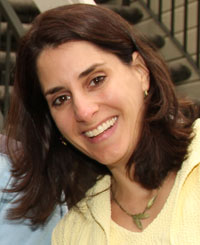 Mary Helen Immordino-Yang
Mary Helen Immordino-Yang
University of Southern California – Brain and Creativity Institute and the Rossier School of Education
What does your research focus on?
I use an interdisciplinary approach that combines affective and social neuroscience, human development psychology, and educational psychology. My research has two branches: One focuses on the development of psychological, neural, and psychophysiological bases of social emotion, social learning, and self across cultures; the other focuses on translating and applying the results of this research within educational contexts.
What drew you to this line of research? Why is it exciting to you?
I came to this work as a public-school junior-high science teacher, where I was intrigued by the ways that my students’ cultural backgrounds and social relationships seemed to influence their conceptual development. I was also much influenced by my own cross-cultural experiences abroad in Kenya, Russia, France, and other countries.
My academic path was interdisciplinary and somewhat circuitous, since I was following a problem rather than a disciplinary field. Although philosophers and poets had for centuries debated what it feels like to be a person in a social world, the inherent subjectivity and privacy of this experience had largely been considered scientifically intractable. Using neuroimaging technologies in conjunction with human developmental approaches for eliciting and analyzing reports of conscious experience, I began to think it may be possible to systematically probe the conscious and nonconscious biopsychological mechanisms by which our experiences, meaning-making, and emotions contribute to social development and self awareness.
Who were/are your mentors or psychological influences?
I am incredibly fortunate to have been encouraged and taught by multiple wise mentors, in human development most notably by Kurt Fischer, my graduate advisor, and Howard Gardner, Catherine Snow, and David Rose, all at Harvard Graduate School of Education. In affective neuroscience, Antonio Damasio graciously invited me to be his postdoc at the Brain and Creativity Institute at the University of Southern California, where I continue to be mentored by him and Hanna Damasio. Robert Rueda, at the USC Rossier School of Education, helps me to bridge between my neuroscience research and application in the field of educational psychology. I have benefited since early grad school from working closely with a veteran teacher/practitioner, Denny Blodget, and with David Daniel, who helps me consider the needs of educators. Several historical psychological figures have also influenced my thinking, most notably Vygotsky, Piaget, Freud, and James, all for different reasons.
To what do you attribute your success in the science?
I think that being trained in more than one discipline has been useful, both because it forces me to continually explain and defend my ideas, methods, and evidence to people who are unfamiliar with some aspect of the approach, and because it affords me a broader range of tools and models to pull from. On top of this, I devote considerable energy to helping teachers and school administrators negotiate the practical challenges associated with teaching and learning in multicultural and urban schools. Moving between lab and school contexts often helps me see the weaknesses in my arguments and the holes in my evidence.
From a practical perspective, the support of my family, especially my husband (also an academic) and my parents and in-laws, makes it possible for me to balance a family and a career.
What’s your future research agenda?
At present, I am particularly fascinated by “prosocial” emotions — emotions like admiration for virtue, awe, inspira tion, gratitude, and compassion — that can profoundly motivate us to toward purposeful action on the one hand, and toward self-reflection and introspection on the other. I would like to understand how the cognitive evaluations that lead to these feelings, arguably unique to adult humans in their fully developed form, co-opt basic neurological mechanisms and drives, such as those for consciousness, homeostatic regulation and bodily sensation. I am also studying how this co-opting process may be organized by cultural values and practices and by social learning in educational settings, and how styles of socialization may interact with biological predispositions in normal development and in mental illness.
Any advice for even younger psychological scientists? What would you tell someone just now entering graduate school or getting their PhD?
Relentlessly follow only those problems that seem most exciting and pressing, but pursue them thoroughly and reflectively and without cutting corners or adopting unnecessary disciplinary blinders. Solicit feedback from people you respect whenever you have the opportunity, especially those who may credibly challenge your thinking. And finally, make the effort to share your ideas and enthusiasm with nonscientists — you’ll have fun, excite others about psychological science, and may even glean new research ideas or interpretations from the discussions.
What publication you are most proud of or feel has been most important to your career?
Although it is not my publication with the highest impact or visibility, I particularly like:
Immordino-Yang, M. H. (2010),Toward a microdevelopmental, interdisciplinary approach to social emotion. Emotion Review, 2, 217–220.
This paper was the first time I articulated in writing how I see techniques and thinking from human development psychology and affective neuroscience coming together to build a scientific framework for studying complex, subjective experiences like self-awareness and social emotions.
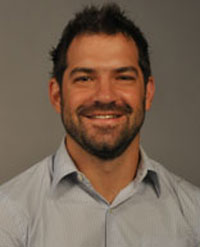 Aaron Kay
Aaron Kay
Duke University
www.fuqua.duke.edu/faculty_research/faculty_directory/kay/
What does your research focus on?
My research focuses on the relation between motivation, implicit social cognition, and broad societal issues. I have a particular interest in how basic motivations and needs – including ones that people may not be entirely aware of – manifest as specific social and societal beliefs. These include (but are not limited to) the causes and consequences of stereotyping and system justification, religious and political belief, and the attitudes people hold towards their institutions and social systems.
What drew you to this line of research? Why is it exciting to you?
I was drawn to these issues because I was (and still am) taken by how little we know about some of humankind’s most cherished and steadfastly defended belief systems. I continue working on these issues because I have now to come to realize the extent to which understanding the origins and functions of these beliefs can shed light on basic psychological processes.
Who were/are your mentors or psychological influences?
In graduate school I was very lucky to have two exceptional advisors: Lee Ross and John Jost. They are my most important mentors and their ideas are my most proximal psychological influences. But I would be remiss if I didn’t mention three other programs of research that deeply influenced my thinking as a graduate student. John Bargh’s research on the automatic nature of social behavior and motivation, Melvin Lerner’s research on the Belief in a Just World, and Susan Fiske and Peter Glicke’s research on hostile and benevolent forms of sexism all strongly influenced my approach to studying the social mind.
To what do you attribute your success in the science?
Two things, really: In graduate school, I had great advisors. They made it very hard for me not to be productive and excited about my research. Afterwards, my years as an Assistant Professor at the University of Waterloo were filled with brilliant and incredibly energetic social psychologist colleagues. Richard Eibach, John Holmes, Mike Ross, Steve Spencer, Joanne Wood, and Mark Zanna provided the type of support and nurturance that a fledgling academic can only dream about. They didn’t merely drop by every once in a while to see how things were going, but became actively engaged in my research, infusing it with different perspectives and methodological approaches. And while that was going on, I was surrounded by the hardest working and smartest set of graduate students one could hope for.
What’s your future research agenda?
That’s a great question, since it is one that I’d love to know the answer to. I have recently developed a model of compensatory control aimed at explaining a wide swath of beliefs and behaviors, and I imagine I will continue to work on understanding and refining that model. Where exactly that will take me, though, is an open question. Research for me is such a collaborative endeavor that I assume my future research agenda will be dictated, at least in part, by what aspects of my research my students and collaborators are most interested in.
Any advice for even younger psychologists? What would you tell someone just now entering graduate school or getting their PhD?
Lee Ross once told me that he thinks it is important to involve yourself in something “exciting” while in graduate school — that is, an idea or approach or perspective that you feel is new and different in some way. In looking back at my experience and those of my many successful peers, I now see the truth in that advice. I am not suggesting (nor do I think Lee was suggesting) that you need to develop something new yourself, but involving yourself in a larger research program that is doing that is an invaluable experience — or at least it was for me. Many of the most successful research programs are ones that deviate from what everyone else is doing but in a way that still keeps them relevant to what everyone else is doing. To do this, you need to both understand what is happening in the field and have a desire to break new ground. The former can be learned pretty easily, but my feeling is the latter is facilitated by getting a sense for what it is like to swim in relatively uncharted waters. So, if possible, seek that out.
What publication you are most proud of or feel has been most important to your career?
Kay, A. C., Gaucher, D., Napier, J. L., Callan, M. J., & Laurin, K. (2008). God and the government: Testing a compensatory control mechanism for the support of external systems. Journal of Personality and Social Psychology, 95, 18-35.
This article was directly inspired by my earliest research in graduate school and now motivates much of my current research. As such, it connects, via one common mechanism, issues I used to work on to issues I am now interested in. So it feels something like a unifying paper to my young career, both temporally and thematically.
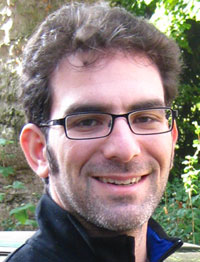 E. David Klonsky
E. David Klonsky
University of British Columbia
What does your research focus on?
Over the past several years, my research has focused on understanding and assessing motivations for non-suicidal self-injury and attempted suicide, as well as the role of emotion in psychopathology. Findings from these projects have led me to develop a new line of research on the classification and assessment of emotional experience. For example, how can we best understand, differentiate, and operationalize emotional reactivity and emotion regulation? Are there primary emotions (e.g., sad, glad, mad, and scared) that can be understood and predicted through a parsimonious, evolutionarily grounded theory?
What drew you to this line of research? Why is it exciting to you?
Suicide and self-injury are extraordinarily important behaviors to understand and prevent. There is urgency to get the science right because lives and livelihoods are at stake. The fact that these behaviors can seem quite counterintuitive means there is still much we do not understand about the psychology and physiology of physical and emotional pain. Regarding my interest in emotion, I see people first and foremost as emotional beings. Understanding emotion is key to understanding everything else about people that one might find interesting.
Who were/are your mentors or psychological influences?
Tom Oltmanns and Eric Turkheimer were wonderful graduate mentors; I arrived at graduate school eager but quite naïve and young, and I graduated on the cusp of developing my own independent program of research. It is amazing how much they taught me in 6 years. I also owe a great deal to Amy Bertelson and Richard Kurtz, who mentored my first independent research while I was an undergraduate at Washington University in St. Louis. Matthew Nock offered me great advice and support as I transitioned from graduate student to assistant professor and built my first research lab. I also feel very lucky and am incredibly grateful to have had such supportive colleagues at Stony Brook University, where I took my first faculty job. Joanne Davila, Dan Klein, Dan O’Leary, Sue O’Leary, and Marv Goldfried, among many others, helped guide me through my stressful and formative first years as an assistant professor. In terms of influences, my philosophy of knowledge is greatly influenced by Richard Feynman and Paul Meehl.
To what do you attribute your success in the science?
I feel I am too new and have accomplished too little to reflect upon my “success.” But to answer the question anyway, without a doubt I owe a great deal to the mentors listed above. In addition, I had superb graduate students at Stony Brook — Catherine (Cassie) Glenn, Anna Weinberg, and Alexis May — who helped me build my first research lab. I can’t overstate their contribution. I also have learned a lot about emotion in psychopathology from collaborations and discussions with Greg Hajcak. As Paul Pilkonis is fond of saying, the Lone Ranger would not make a good academic. No one succeeds alone. I also think my parents instilled in me early on the importance of asking questions. I still own my copy of Charlie Brown’s Super Book of Questions and Answers, which they bought for me when I was 6 years old. They inscribed messages inside the front cover about how proud they were of me and the importance of always asking questions. Perhaps this helped set me on a path towards a life of scientific inquiry.
What’s your future research agenda?
One of the wonderful things about academia is that when we think of questions that interest us we are free to pursue them. So in the long term, I look forward to discovering many new and exciting questions to pursue. In the near future, I plan to greatly expand my research on the classification and measurement of emotional experience, and I just received a grant on this topic. I am also expanding my research on suicide, and particularly how and why people transition from suicidal ideation to suicide attempts.
Any advice for even younger psychological scientists? What would you tell someone just now entering graduate school or getting their PhD?
If you love research, and that is what you want to talk about when you’re having beers on a Friday evening, then this is the job for you. The independence is wonderful, the flexibility is wonderful, and it is a fortunate thing to be paid to do something you love. At the same time, there are many stresses and demands that expand well beyond the typical 9-to-5 schedule. So if you don’t love research, this job will make you miserable.
What publication you are most proud of or feel has been most important to your career?
Klonsky, E.D. (2007). The functions of deliberate self-injury: A review of the evidence. Clinical Psychology Review, 27, 226-239. It is simply a straightforward review of empirical studies examining the functions of non-suicidal self-injury (NSSI). But there is
so much misinformation about NSSI — for instance, that NSSI is a type of suicide attempt, a form of manipulation, a sure sign of borderline personality disorder, a manifestation of early abuse — and I feel the paper has played an important role in separating wheat from chaff, and highlighting for both researchers and clinicians that NSSI is most often a private behavior performed to quickly reduce overwhelming negative emotion.
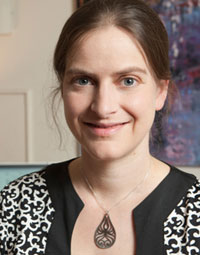 Corinna E. Löckenhoff
Corinna E. Löckenhoff
Cornell University
http://www.human.cornell.edu/hd/healthyaging
What does your research focus on?
My research examines age differences in personality and emotions and explores their influence on health-related decisions and outcomes. A central goal is to understand how age groups differ in their approach to healthcare choices and to find ways to optimize such choices across the life span. Another line of my research examines life-long trajectories in people’s personality traits and their relation to mental and physical health.
What drew you to this line of research? Why is it exciting to you?
My interest in life-span development emerged from working as a nursing home aide in my late teens. It was fascinating to me how some residents managed to maintain emotional well-being and a rewarding social life in spite of physical and cognitive decline. This sparked my long-standing interest in the role of personality and emotion in late life.
Who were/are your mentors or psychological influences?
I was very lucky to be supported by a series of outstanding mentors. Early on, Gerhard Stemmler at Marburg University, Germany sparked my interest in experimental emotion research, and Steve Zarit at Pennsylvania State University convinced me to choose research over a clinical career. During my graduate years at Stanford, Laura Carstensen challenged me to think beyond chronological age and explore the true mechanisms behind age effects, and Al Bandura taught me how to move “onward and upward” after yet another failed pilot study. More recently, Paul Costa and Jeff McCrae at the NIH helped me appreciate the life-long role of five-factor traits. Now at Cornell, I continue to benefit tremendously from the advice and support of senior colleagues.
To what do you attribute your success in the science?
Settling on life-span development as a field of interest before I even finished high school has been very helpful in focusing my energy and making career decisions. Apart from that, whatever success I have had so far is based on the same components as for most other researchers: Scientific curiosity, an educational environment that allowed me to pursue my interests, helpful mentors, dedicated students, and — especially important for women scientists — a supportive family.
What’s your future research agenda?
My current work examines the role of affect in common behavioral economics tasks (e.g., temporal discounting). Although there is initial evidence that emotions play an important role in such tasks, the specific mechanisms and age-related changes in those mechanisms are not fully understood. In particular, I am trying to extend this work beyond monetary incentives to study outcomes relevant for mental and physical health such as emotional experiences or pain levels. In the long run, I hope to translate these findings to real-life settings and patient populations.
Any advice for even younger psychological scientists? What would you tell someone just now entering graduate school or getting their PhD?
The best advice I ever got was to pursue research on a topic that is truly fascinating to you, regardless of outside contingencies and current scientific fashions. Once you have found that topic, think, read, write, and talk about it a lot. Approach it from different angles and get as much feedback as you can. Much of my research benefitted greatly from insights offered by mentors, peers, and students.
What publication you are most proud of or feel has been most important to your career?
Löckenhoff, C.E., & Carstensen, L.L. (2004). Socioemotional selectivity theory, aging, and health: The increasingly delicate balance between regulating emotions and making tough choices. Journal of Personality, 72, 1393–1424.
Of course, my favorite paper is always the one that I just submitted. But seriously, the paper with the greatest influence on my research career was this conceptual paper that I wrote halfway through graduate school. Although I was not aware of it at the time, it laid out my research agenda for many years to come. Some of the studies I am working on today still have their roots in the thinking that went into that early publication.
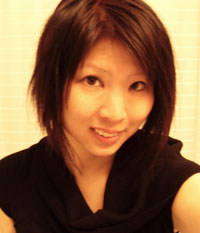 Amori Yee Mikami
Amori Yee Mikami
University of Virginia
http://people.virginia.edu/~am4jd/
What does your research focus on?
Nearly all people can remember someone from his or her own childhood who didn’t get along with the peer group. Yet, when asked why this child had difficulty, most people name behaviors within the disliked child as the source of the problem (e.g., that child couldn’t share; that child told lies). Few consider social contextual factors, such as prejudice in the peer group, or a peer climate that discourages inclusion, that also affect the likelihood that a child will be accepted. I am fascinated by the understudied idea that social contextual factors may influence peer relationships.
What drew you to this line of research? Why is it exciting to you?
Growing up, I moved nine times between birth and age 18 and saw firsthand the dramatic variability in school and neighborhood social norms. Some behaviors that would lead to peer group acceptance in one location would fail in another location. Current conceptual models of peer problems neglect such social contextual influences like peer-group norms, instead predominantly focusing on behaviors on the part of the disliked child. I am excited by the prospect of expanding existing models to include such social contextual factors.
Who were/are your mentors or psychological influences?
I entered college knowing nothing about graduate school or what academic research entailed and wanted my psychology degree to become a therapist. Despite this, my undergraduate advisor Ian Gotlib patiently educated me about the research process and was the person who first suggested to me that I was capable of undertaking graduate training. I have deep appreciation for my graduate and postdoctoral mentors, Stephen Hinshaw and Linda Pfiffner. Both invested endless energy into helping shape my ideas, writing, and statistical skills. I model my approach after theirs, and I would not be a scientist today without their tremendous efforts.
To what do you attribute your success in the science?
No matter how inspired I am by my overarching research questions, there is often a point in a study or in the writing process where I lose motivation. Typically, I look at how much work is needed to complete the task and I feel discouraged. The most helpful trick I have found is to pursue that task for one focused hour each weekday and then be sure to stop when the hour is done. One hour is substantially low so that it is a manageable daily goal, yet at the end of two weeks of this process, I usually see the light at the end of the tunnel.
What’s your future research agenda?
I am creating interventions to change the social context of children’s peer interactions. Specifically, I am training teachers to encourage a peer-group environment that is inclusive and welcoming so as to make it unlikely that any child will be peer-rejected. I am also instructing parents in how to arrange fun playdates that maximize the probability that the children will get along, as a way to encourage friendship development. Currently, most interventions for peer problems draw from the predominant conceptual model of deficits within the disliked child as the source of the difficulties, and attempt to remediate such deficits through medication or social skills training. Yet I think that intervening in the social context of peer relationships can be an addition to child-level treatments that may augment effectiveness.
Any advice for even younger psychological scientists? What would you tell someone just now entering graduate school or getting their PhD?
Remember to laugh a lot and relax with the people (and pets) you care about. In our field, it is always possible to submit another paper. However, even if you did publish one more paper than you have now, you could still publish one more paper beyond that, or that paper could be in a higher-tier journal. Knowing when to stop working is equally important as is knowing when to when to start working.
What publication you are most proud of or feel has been most important to your career?
Mikami, A.Y., Lerner, M.D., Griggs, M.S., McGrath, A., & Calhoun, C.D. (2010). Parental influences on children with Attention-Deficit/Hyperactivity Disorder: II. A pilot intervention training parents as friendship coaches for their children. Journal of Abnormal Child Psychology, 38, 737-749.
With the help of my students, I designed, implemented, and evaluated an intervention to change the social contextual factors that I hypothesize contribute to peer problems. Children randomly assigned to the intervention improved in their peer relationships relative to a no-treatment control group. This research supports the theoretical proposition that social contextual factors, not only problem behaviors within disliked children, affect peer relationships.
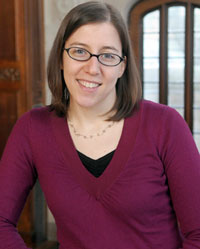 Kristina Olson
Kristina Olson
Yale University
What does your research focus on?
My research sits at the intersection of social and developmental psychology, exploring the emergence and development of social cognition. My lab focuses on three primary areas: (1) the emergence and development of social group attitudes; (2) “strategic pro-sociality,” or the ways in which children are more or less helpful or generous in different contexts; and (3) children’s understanding of ideas and intellectual property.
What drew you to this line of research? Why is it exciting to you?
The first area that drew me in to experimental psychology was social cognition. I was attracted to the topics historically studied in social psychology and to the precision of modern experimental designs. However, I found myself constantly wondering where these cognitions and behaviors came from and how understanding their emergence might allow us to better understand the phenomena themselves. The possibility of really connecting social and developmental psychology – borrowing methods and theories from both fields and learning from experts in both areas — felt like an exciting place for me to make a contribution.
Who were/are your mentors or psychological influences?
I have been incredibly fortunate in having tremendous mentors all the way along my path. My decision to want to become an experimental psychologist was largely attributable to a memorable research methods course in college taught by Jeff Zacks, in which I was pushed to design my own study and discover my love of data. My decision to pursue research as a career was solidified because of experiences working in the labs of Roddy Roediger and Alan Lambert who to this day continue to serve as mentors. In graduate school I learned to actually become an experimental psychologist from my advisor, Mahzarin Banaji. She, Liz Spelke, and Carol Dweck served as mentors throughout graduate school and continue to do so today. Finally, I have been fortunate to have landed in a department surrounded by senior faculty who routinely serve as mentors and models of how to be a successful experimental psychologist.
To what do you attribute your success in the science?
Any success I have had in the field is attributable to my mentors, close collaborators, and phenomenal students who consistently make me become a better scientist. I have also been lucky to have arrived at the intersection of social and developmental psychology at a time when many peers have as well. We’ve been able to create a community of colleagues who are working together and pushing one another to solve some of the most interesting and vexing questions about the development and emergence of social cognition.
What’s your future research agenda?
One part of my future research agenda will involve increasing our nearly non-existent knowledge of how people think about ideas and apply concepts of ownership to ideas. Some of the most fascinating questions about science itself have to do with how new ideas emerge, the contexts that promote new idea development, and how we harness old ideas to create new ones. I’m excited to learn how people come to think about their own and others’ ideas and to get others excited about these under-studied questions. A second part of my research agenda will focus on questions about the selective nature of pro-social behaviors such as helping and sharing. I’m interested in when and why people are more or less generous in different contexts, such as when they are being observed or when they are interacting with an unfamiliar person. Finally, I plan to continue to my research in the U.S. and South Africa aimed at understanding the role that perceptions of group differences in status play in the emergence and development of social group attitudes.
Any advice for even younger psychological scientists? What would you tell someone just now entering graduate school or getting their PhD?
My advice is to recognize that there are lots of different ways to succeed in science and that you have to find the path that works for you. I often hear people talk about “the way” to success as if there’s one right path, but when I look at the folks I most admire in the field, I see that they have all succeeded in unique ways that maximized their strengths and allowed them to spend more time on the parts of this job that pulled them to this career in the first place. It takes lots of different kinds of people and approaches to make the field work, and I encourage graduate students to find the path that works for them. I’d also say it takes a lot of hard work, determination, and a bit of luck to stay in this field and that you have to surround yourself with a group of people who can both help get you through the frustrations but also help you celebrate your successes.
What publication you are most proud of or feel has been most important to your career?
At the moment, I’m most excited about a recently published paper that I wrote with my graduate student, Alex Shaw.
Olson, K. R., & Shaw, A. (2011). “No fair, copycat!”: What children’s response to plagiarism tells us about their understanding of ideas. Developmental Science, 14, 431-439.
This paper is important to me because it represents a milestone in my own career (it’s my first paper with my own graduate student) and because it’s the first paper in a new line of work. Examining children’s understanding of ideas and intellectual property is a new direction in my lab and in the field more generally. Questions about what counts as a unique idea, what it means to own an idea, and why we care so much about ideas are thoroughly unanswered questions in psychology, yet they are critically important and extremely timely in the world outside the lab.
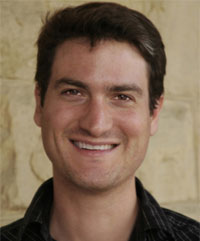 Greg Walton
Greg Walton
Stanford University
www.stanford.edu/~gwalton/home/Welcome.html
What does your research focus on?
One of my main interests involves how the important contents of people’s selves — like their interests, motivations, and emotions — which people tend to think of as defining of or as originating in themselves, in fact derive from the social context, especially from others they know or are socially connected to. With my collaborators, I’ve looked at this in the context of academic motivation and achievement. We’ve shown, for example, that even subtle cues of social connection or disconnection to others in a field of study can have a large effect on intrinsic motivation for that field. Much of this research relates to problems of inequality, such as how negative stereotypes and stigma change the social environment of academic settings for minority group members in ways that can undermine students’ feelings of belonging and achievement.
In addition, I am broadly interested in psychological interventions — what I call “wise interventions” — strategies to target specific psychological processes to improve important real-world outcomes like academic achievement, health, well-being, intergroup relations, and political and environmental behaviors. Related to this, I’m interested in the interface of psychological processes and policy problems, as in the case of affirmative action.
What drew you to this line of research? Why is it exciting to you?
When I was in high school, I joined a student group that led workshops with middle-school students on issues of race, discrimination, and stereotyping. As I did, going through what I now know of as cognitive dissonance, I became more interested in issues of inequality. At one point, I read Claude Steele’s 1992 article in Atlantic Monthly on stereotype threat (“Race and the Schooling of Black Americans”). For me, the idea that pervasive inequalities in American life could be due, in part, to social psychological processes was transformative. I was struck by the possibility that we might not need to entirely eliminate poverty and structural inequalities to expand opportunities and make a significant difference in people’s lives. Perhaps just by tweaking the social environment we could help make the American dream more of a reality for underrepresented groups. It was through stereotype threat that I first understood the subtle and extraordinary power of social psychology.
Who were/are your mentors or psychological influences?
I don’t think you ever stop learning and growing in academia. I have had many wonderful mentors, including students, postdocs, and peers. It was Claude Steele who first drew me to psychology, and I worked with him and his graduate students as a research assistant throughout college. I did an honors thesis with Claude too, and, more than anyone, he forged my interests in the field. In college I also did a research project with Eleanor Maccoby, who was a warm, wonderful, and wise mentor. I have on my bookshelf a copy of Eleanor’s book, The Two Sexes: Growing Up Apart, Coming Together, which she gave me and in which she inscribed, “To Greg Walton — Who thinks like a psychologist, and may become one.” No book means more to me than that one.
In graduate school, Geoff Cohen was my advisor from day one, and he has always been a perfect mentor, collaborator, and general co-conspirator to me. In addition, Mahzarin Banaji helped further develop my interests in social cognition and social problems. After graduate school, I worked for a year in Washington, DC for Hillary Clinton, who I admire immensely and who, in her own way, served as an important mentor to me. As a postdoc, I had another wonderful mentor, Steve Spencer, who is ever warm and welcoming and generous with his wisdom. As a faculty member at Stanford, Carol Dweck has welcomed me with open arms and helped me learn the ropes on the job. All these plus my students and postdocs at Stanford have meant a great deal to me.
To what do you attribute your success in the science?
I think I found a problem — a social and a psychological problem, the social bases of academic outcomes and inequality, and how to remedy this source of inequality — that I am passionate about, that inspires me, and that I have pursued tenaciously with some of the best friends and collaborators around.
What’s your future research agenda?
I’m excited about new research examining interventions to improve students’ sense of belonging in the transition to middle school (with Geoff Cohen, Julio Garcia, Nancy Apfel, and Allison Master), to elite engineering programs (with Christine Logel, Jen Peach, and Steve Spencer), and to high school, including an intervention with teachers (with Christine Logel and Jason Okokofua), about strategies to deliver psychological interventions more broadly (with Dave Paunesku and David Yeager), and about the implications of this research for affirmative action (with Steve Spencer and Sam Erman). In addition, an important aspect of this research involves thinking about why even brief social-psychological interventions can have large effects even over long-periods of time, a question that links social and developmental processes and which I’ve been thinking about with Geoff Cohen.
I’m also excited about research on the self including “expandable self theory” (with Dave Paunesku and Carol Dweck); on implicit theories of willpower, including new physiological, brain imaging, and intervention studies (with Veronika Job, Carol Dweck, Katharina Bernecker, Eric Miller, and Sam McClure); on the sense of working with others, including how this sense can arise from minimal cues in the physical absence of others, increase intrinsic motivation, reduce stereotype threat, and provide a new psychological account for the effects of social norms (with Priyanka Carr); on how minimal social cues if connectedness and togetherness can increase motivation even among preschoolers (with Allison Master and Luke Butler); on how social connections and dissonance may conspire to reduce intergroup antipathy (with Tiffany Brannon and Steve Spencer); on language and interventions to change political behavioral (with Chris Bryan and Carol Dweck); and on many other topics!
Any advice for even younger psychological scientists? What would you tell someone just now entering graduate school or getting their PhD?
Don’t mire yourself in small questions or narrow problems — if you do, you set the ceiling on the potential impact of your research too low. Ask big questions. When you do a study, make it address a real social or psychological problem, not just a narrow question relevant only to the laboratory (or some reviewer). Think big, get the details of the study right to insure it will have impact, collaborate, and persevere when editors or reviewers are too thick to get it.
What publication you are most proud of or feel has been most important to your career?
That is a difficult question. But I entered the field incredibly excited about the possibility of using social psychological processes to address pervasive inequality in society. So my research with Geoff Cohen and others in creating and testing interventions to buttress ethnic minority students’ feelings of social belonging in college has been extremely gratifying.
Walton, G. M., & Cohen, G. L. (2007). A question of belonging: Race, social fit, and achievement. Journal of Personality and Social Psychology, 92, 82-96.
Walton, G. M., & Cohen, G. L. (2011). A brief social-belonging intervention improves academic and health outcomes of minority students. Science, 331, 1447-1451.
This research finds, for instance, that a one-hour exercise to ameliorate some of the worries about belonging associated with being negatively stereotyped in school improved the grades of African American college students over the next three years, halving the racial achievement gap. Related to this is my research demonstrating how the psychological threats that interventions like this address systematically undermine stereotyped students’ academic performance, a finding with direct relevance to affirmative action:
Walton, G. M., & Spencer, S. J. (2009). Latent ability: Grades and test scores systematically underestimate the intellectual ability of negatively stereotyped students. Psychological Science, 20, 1132-1139.
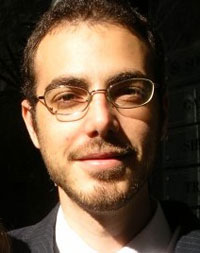 Tal Yarkoni
Tal Yarkoni
University of Colorado at Boulder
What does your research focus on?
Most of my current research focuses on what you might call psychoinformatics: the application of information technology to psychology, with the aim of advancing our ability to study the human mind and brain. I’m interested in developing new ways to acquire, synthesize, and share data in psychology and cognitive neuroscience. Some of the projects I’ve worked on include developing new ways to measure personality more efficiently, adapting computer science metrics of string similarity to visual word recognition, modeling fMRI data on extremely short timescales, and conducting large-scale automated synthesis of published neuroimaging findings. The common theme that binds these disparate projects together is the desire to develop new ways of conceptualizing and addressing psychological problems; I believe very strongly in the transformative power of good methods.
What drew you to this line of research? Why is it exciting to you?
Technology enriches and improves our lives in every domain, and science is no exception. In the biomedical sciences in particular, many revolutionary discoveries would have been impossible without substantial advances in information technology. Entire subfields of research in molecular biology and genetics are now synonymous with bioinformatics, and neuroscience is currently also experiencing something of a neuroinformatics revolution. The same trend is only just beginning to emerge in psychology, but we’re already able to do amazing things that would have been unthinkable 10 or 20 years ago. For instance, we can now collect data from thousands of people all over the world online, sample people’s inner thoughts and feelings in real time via their phones, harness enormous datasets released by governments and corporations to study everything from how people navigate their spatial world to how they interact with their friends, and use high-performance computing platforms to solve previously intractable problems through large-scale simulation. Over the next few years, I think we’re going to see transformative changes in the way we study the human mind and brain, and I find that a tremendously exciting thing to be involved in.
Who were/are your mentors or psychological influences?
I’ve been fortunate to have outstanding teachers and mentors at every stage of my training. I actually started my academic career quite disinterested in science and owe my career trajectory in no small part to two stellar philosophy professors (Rob Stainton and Chris Viger) who convinced me as an undergraduate that engaging with empirical data was a surprisingly good way to discover how the world really works. I can’t possibly do justice to all the valuable lessons my graduate and postdoctoral mentors have taught me, so let me just pick a few out of a hat. Among many other things, Todd Braver taught me how to talk through problems collaboratively and keep recursively questioning the answers to problems until a clear understanding materializes. Randy Larsen taught me that patience really is a virtue, despite my frequent misgivings. Tor Wager has taught me to think more programmatically about my research and to challenge myself to learn new skills. All of these people are living proof that you can be an ambitious, hard-working, and productive scientist and still be extraordinarily kind and generous with your time. I don’t think I embody those qualities myself right now, but at least I know what to shoot for.
To what do you attribute your success in the science?
Mostly to blind luck. So far I’ve managed to stumble from one great research and mentoring situation to another. I’ve been fortunate to have exceptional advisors who’ve provided me with the perfect balance of freedom and guidance and amazing colleagues and friends who’ve been happy to help me out with ideas and resources whenever I’m completely out of my depth — which is most of the time.
To the extent that I can take personal credit for anything, I think I’ve been good about pursuing ideas I’m passionate about and believe in, even when they seem unlikely to pay off at first. I’m also a big proponent of exploratory research; I think pure exploration is tremendously undervalued in psychology. Many of my projects have developed serendipitously, as a result of asking, “What happens if we try doing it this way?”
What’s your future research agenda?
I’d like to develop technology-based research platforms that improve psychologists’ ability to answer existing questions while simultaneously opening up entirely new avenues of research. That includes things like developing ways to collect large amounts of data more efficiently, tracking research participants over time, automatically synthesizing the results of published studies, building online data repositories and collaboration tools, and more. I know that all sounds incredibly vague, and if you have some ideas about how to go about any of it, I’d love to collaborate! And by collaborate, I mean that I’ll brew the coffee and you’ll do the work.
Any advice for even younger psychological scientists? What would you tell someone just now entering graduate school or getting their PhD?
The responsible thing would probably be to say “Don’t go to graduate school.” But if it’s too late for that, I’d recommend finding brilliant mentors and colleagues and serving them coffee exactly the way they like it. Failing that, find projects you’re passionate about, work with people you enjoy being around, develop good technical skills, and don’t be afraid to try out crazy ideas. Leave your office door open, and talk to everyone you can about the research they’re doing, even if it doesn’t seem immediately relevant. Good ideas can come from anywhere and often do.
What publication you are most proud of or feel has been most important to your career?
Yarkoni, T., Poldrack, R. A., Nichols, T. E., Van Essen, D. C., & Wager, T. D. (2011). Large-scale automated synthesis of human functional neuroimaging data. [Manuscript submitted for publication]
In this paper, we introduce a highly automated platform for synthesizing data from thousands of published functional neuroimaging studies. We used a combination of text mining, meta-analysis, and machine learning to automatically generate maps of brain activity for hundreds of different psychological concepts, and we showed that these results could be used to “decode” cognitive states from brain activity in individual human subjects in a relatively open-ended way. I’m very proud of this work, and I’m quite glad that my co-authors agreed to make me first author in return for getting their coffee just right. Unfortunately, the paper isn’t published yet, so you’ll just have to take my word for it that it’s really neat stuff. And if you’re thinking, “Isn’t it awfully convenient that his best paper is unpublished?”… why, yes. Yes it is.




Comments
I am very impressed with each of you, and I hope to join your ranks as highly-productive researchers before I hit forty.
Best regards…
APS regularly opens certain online articles for discussion on our website. Effective February 2021, you must be a logged-in APS member to post comments. By posting a comment, you agree to our Community Guidelines and the display of your profile information, including your name and affiliation. Any opinions, findings, conclusions, or recommendations present in article comments are those of the writers and do not necessarily reflect the views of APS or the article’s author. For more information, please see our Community Guidelines.
Please login with your APS account to comment.